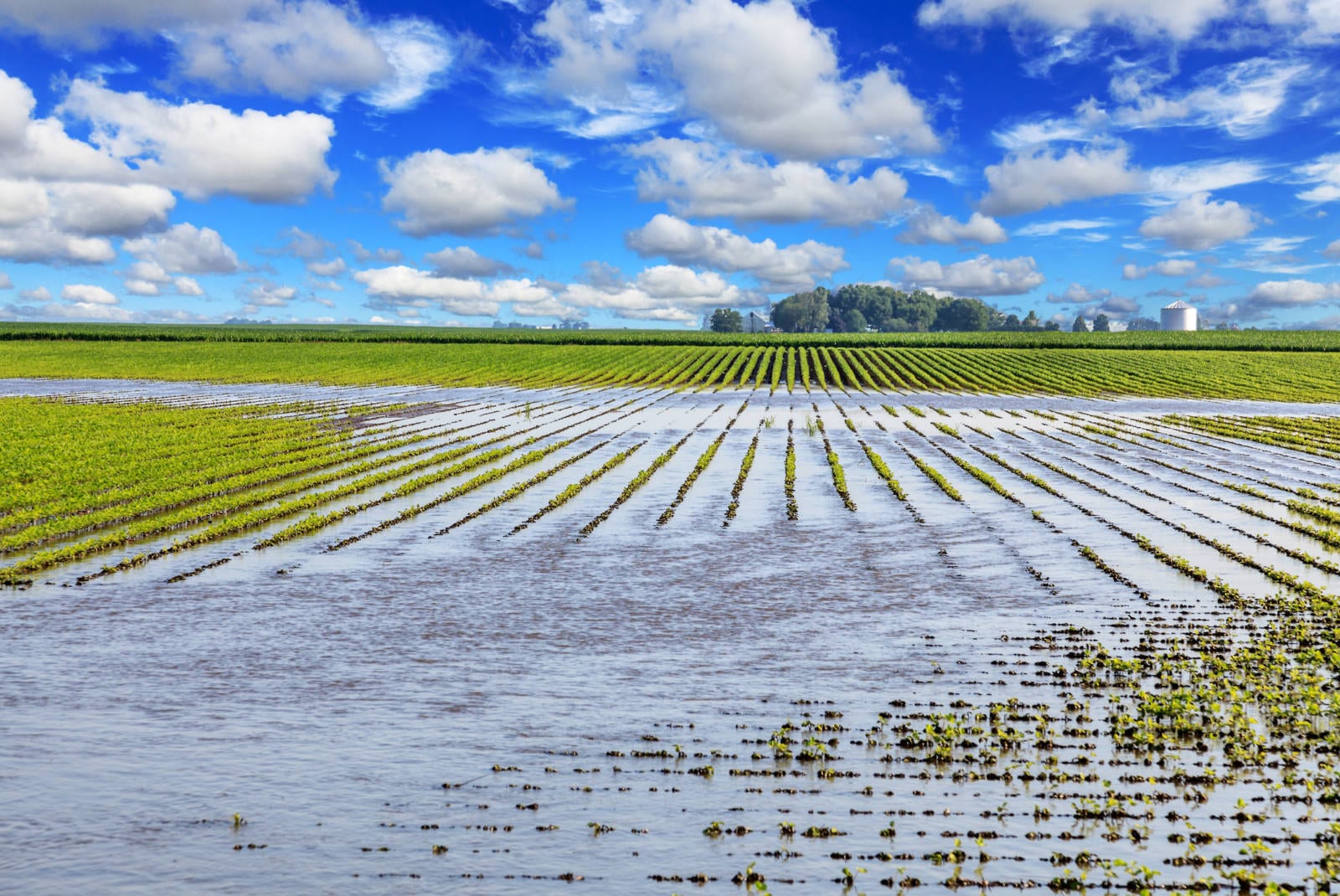As U.S. farmers manage challenging field conditions to continually grow a reliable supply of high-quality soybeans, the United Soybean Board (USB) funds production research to support ongoing adaptations and improvements. For example, at the University of Missouri in the U.S. Midwest, researchers investigated how soybeans can better handle waterlogged conditions.
“The soy-checkoff helped fund genetic research to develop soybeans that can handle floods like those experienced in many parts of the U.S. during 2019,” says Tim Venverloh, USB vice president of Sustainability Strategy. “Production research like this leads to technology advancements that help U.S. soybean farmers meet customer demand.”
Building a soybean to withstand floods
A University of Missouri researcher is looking at ways to help plants survive waterlogging.
As floods affected numerous Midwest states in 2019, crop losses were widespread as water sat in fields for weeks at a time. One University of Missouri plant geneticist and his team are looking at how to make soybean plants more tolerant to extreme flooding conditions.
“Studies have found that when there is a heavy rain and waterlogging occurs for just two to three days, yield is reduced by around 20%,” said Henry Nguyen, MU curators’ distinguished professor in the Division of Plant Sciences. “If that waterlogging takes place for seven to 10 days, yield is reduced by around 80%. Waterlogging is also much more difficult for producers to see, as pests and drought, for example, leave behind definite signs of stress. Flooding stress oftentimes isn’t caught until it’s too late to act.”
Soybean focus
Two USDA National Institute of Food and Agriculture grants totaling almost $900,000 will allow Nguyen to build on his research focus related to abiotic stress tolerance and disease resistance in plants, primarily soybeans.
A portion of the grants will focus on waterlogging tolerance, while the other looks at fighting soybean cyst nematodes.
Waterlogging events force the roots of the soybean plant to be under constant stress. Nguyen’s team has map-based, cloned and validated a candidate gene that features a major waterlogging tolerance trait. That candidate gene encodes a protein that helps root development under waterlogging stress.
“The candidate gene, qWT_Gm03, is involved in altering the soybean root system,” Nguyen said. “When the soybean plant is under flooding stress, there is a lack of oxygen that causes the plant to not grow. Ideally, the candidate gene allows for nutrient uptake and helps the plant overcome flooding stress, which allows it to not struggle as much under flooding conditions.”
Diving in
Within this grant, Nguyen and his team are looking to characterize the naturally occurring small auxin-up RNA or SAUR-FT (flooding tolerant) protein variation in the soybean germplasm, as well as develop a waterlogging-tolerant and high-yielding germplasm. They also are evaluating the agronomic importance of SAUR-FT in sustainable soybean production.
“We’re working to understand the candidate gene,” Nguyen said. “We’re in the final stretch of studying the function and its molecular mechanism.”
Nguyen is collaborating on the project with Julia Bailey-Serres, director, Center for Plant Cell Biology at the University of California-Riverside.
“We want our soybean lines to be as effective as possible, so diving into their genetic makeup is a vital part of the process,” Nguyen said. “We need to understand these genetics, and the sooner the better, as these flooding events and nematode issues continue to be a major issue facing our farmers and producers.”
